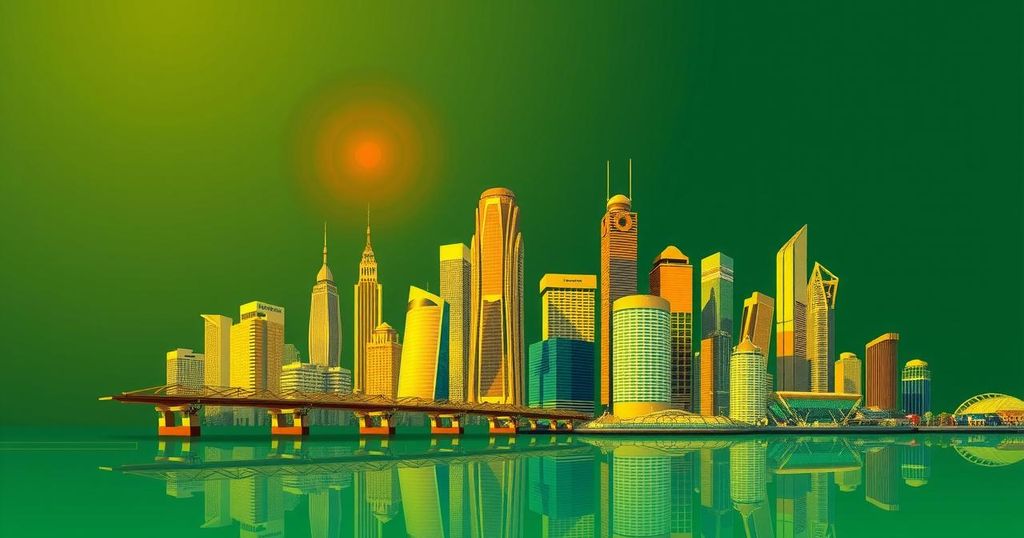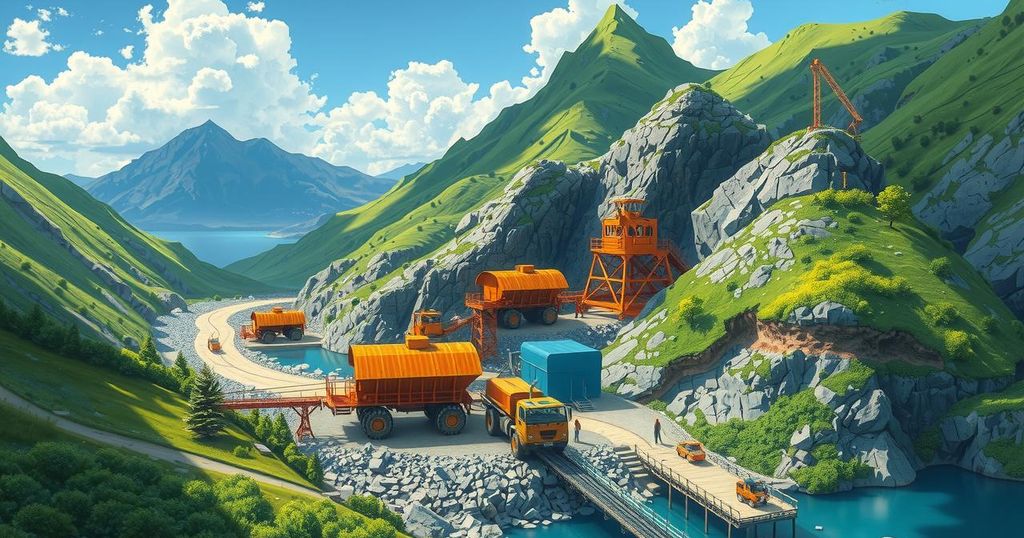The Democratic Republic of Congo is rich in natural resources but caught in violent conflict, particularly exacerbated by alleged Rwandan involvement. This article evaluates the ongoing humanitarian crisis, emphasizes the need for international support, and encourages responsibility in managing the DRC’s resources to foster peace and development.
The Democratic Republic of Congo (DRC) is recognized for its vast natural resources yet is currently engulfed in severe conflict. Despite its wealth—valued at an estimated $24 trillion including significant mineral deposits—violence persists, particularly in eastern regions. This article examines the ongoing turmoil, alleged Rwandan involvement, and suggests avenues for international assistance amidst a humanitarian crisis.
Rich in natural resources, the DRC is endowed with the world’s largest reserves of cobalt and coltan. However, it has been embroiled in conflict, with recent violence linked to the March 23 Movement (M23), comprised of Congolese Tutsi ex-soldiers. The backdrop of the DRC’s turmoil dates back to the Rwandan genocide in 1994, leading to entrenched ethnic tensions, especially between Hutu and Tutsi militias.
The Rwandan government, led by President Paul Kagame, has been accused of supporting M23 rebels, an allegation that it vehemently denies. Nonetheless, international observers have presented evidence of Rwandan military support to M23, pointing to a complex regional dynamic woven into the conflict. Thus, local disputes are interspersed with broader geopolitical interests.
Rwanda’s role in the DRC’s conflicts appears to stem from both security fears regarding Hutu militias and desires to control resource-rich areas. Although M23 rebels claim they are protecting Tutsi interests, critics assert this serves as a guise for exploiting the DRC’s wealth—particularly in areas abundant with minerals essential for global industries.
The humanitarian toll is severe, with reports indicating that approximately 26 million individuals require assistance due to ongoing violence. As humanitarian crises worsen, international support becomes essential to alleviate the suffering endured by millions. Urgent action is needed to combat the intersection of poverty, violence, and health issues within the DRC.
Addressing the humanitarian situation is paramount. Raising awareness about the plight of Congolese citizens is critical to mobilizing global support for humanitarian efforts. Financial contributions to credible organizations working on the ground can provide vital aid, including healthcare, food security, and shelter for displaced populations.
Advocating for policy reforms is also crucial to ensure ethical sourcing of Congolese minerals and to discourage the trade of conflict minerals. Therefore, applying pressure on the global community is necessary to facilitate negotiations aimed at achieving a peaceful resolution to the conflict.
In conclusion, the DRC’s situation starkly highlights the contradictions of a resource-rich nation stricken by violence. Rwanda’s alleged maneuvers for resource control exacerbate the plight of millions. Collective global action emphasizing awareness and support can significantly contribute to the DRC’s recovery, promoting sustainable development and stability for its people. It is imperative for the world to engage actively to redirect the DRC’s resources toward fostering peace, rather than conflict.
The Democratic Republic of Congo possesses an immense wealth of natural resources, yet it is riddled with conflict, particularly influenced by regional tensions involving Rwanda. The complexities of its history, compounded by the repercussions of the Rwandan genocide, have laid a foundation for sustained violence relating to ethnic strife and control over valuable resources, impacting millions of citizens.
The DRC, despite its enormous resource wealth, remains in the grips of extensive conflict and humanitarian crises, exacerbated by alleged Rwandan involvement. Addressing these issues calls for increased awareness, financial assistance, and policy advocacy. These collective global efforts are vital to restoring peace, fostering responsible resource management, and ensuring sustainable development for the Congolese populace.
Original Source: borkena.com




